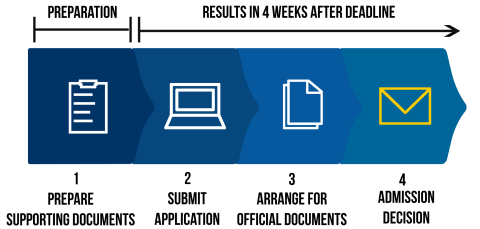Foundations of Data Science (GC)
Length of program
Part-time: 8 months
Program consists of:
Campus
Intake
Program description
Careers in Data Science Courses in Foundations of Data Science
Combine math, programming & problem-solving
Create & communicate data-driven solutions
With the Graduate Certificate in Foundations of Data Science (GCFDS) program, you'll gain a solid foundation in data science theories, methods and applications using complex data from a variety of fields, including business, science, health, engineering, agriculture, social science, natural resources, entertainment, communications, sports and more. In both academic and industry contexts, learn to use data management tools and gain skills in data visualization, machine learning model construction, results interpretation and communication.
What to expect from this program:
- Learn to store, prepare, visualize, analyze, model and communicate data
- Gain basic terminology and concepts of data science
- Understand the components of a data science workflow and
- Apply data science workflow to answer targeted questions
- Acquire advanced knowledge in data processing and machine learning, such as:
- data cleaning
- data wrangling
- regression and classification tasks
- supervised and unsupervised machine learning approaches
- regression trees and deep neural networks
- data visualization and communication of complex results
- Apply machine learning algorithms and associated tools in a cloud computing environment
- Understand limitations and ethical concerns around solving real-world problems using data collection and machine learning
- Develop competency with programming languages like Python
Request info Find application informationFind fees & tuition detailsApply
Courses for the Graduate Certificate in Foundations of Data Science (12.0 credit hours):
In case of discrepancies between this page and the Graduate Studies Calendar and Course Catalogue, the Graduate Studies Calendar and Course Catalogue shall prevail.
- Data Science 5010/Business Analytics 5010 - Introduction to Data Science and Analytics in Python I (3.0 credit hours)
- Data Science 5020/Business Analytics 5020 - Data Visualization (1.5 credit hours)
- Data Science 5050/Business Analytics 5050 - Data Wrangling (1.5 credit hours)
- Data Science 5110/Business Analytics 5110 - Introduction to Data Science and Analytics in Python II (3.0 credit hours)
- Data Science 5140/Business Analytics 5140 - Data Management (1.5 credit hours)
- Data Science 5180 - Final Project (1.5 credit hours)
Career pathways
Accounting | Computer science | Economics | Finance | Management | Marketing |Supply-chain | Machine learning & Artificial intelligence
Animation, design, new media & videography | Art history, museum studies, curation & preservation | Data visualization | Stage management, lighting & design
Health services | Medicine | Nursing | Occupational therapy & therapeutic recreation | Public health
Agriculture | Agronomy | Agricultural biotechnology | Applied statistics | Archaeology | Architecture | Biology & biophysics | Communications | Computer science | Economics | Engineering | Environmental science | Finance | Geography & GIS | Kinesiology & Physical education | Mathematics | Materials science | Neuroscience | Physics | Psychology | Remote sensing | Social work | Sociology | Urban planning
Additional information
To be considered for admission, you must apply and meet the following requirements:
- Hold a baccalaureate degree (i.e. undergraduate degree, bachelor's degree) from a recognized degree-granting institution
- Have a minimum grade point average (GPA) of 3.00, based on the ULethbridge 4.00 scale, on the last 20 graded university-level term courses (60.0 credit hours)
- Demonstrate English Language Proficiency (ELP) for graduate students

Step 1: Prepare supporting documents
Before you begin an application, please review the supporting documents below. If additional documentation is required, the Faculty of Arts and Science will contact you.
Step 2: Apply online before deadline
Step 3: Arrange for official documents
Official documents (e.g., transcripts, English language proficiency test scores) are required prior to registration.
Note: If you attended or are currently attending an institution participating in ApplyAlberta, you do not need to arrange for official transcripts to be sent to ULethbridge from that institution. See a list of participating institutions at www.applyalberta.ca.
Note: if your degree is from a non-Canadian university, you must provide notarized English translations of any documents not written in English.
Step 4: Admission decision process
The relevant Graduate Program Committee reviews your application and makes admissions decisions.
For more details please see the Graduate Studies Calendar and Course Catalogue
Unofficial Transcripts
You will need to upload and submit your unofficial transcripts, including proof of graduation for your completed degree(s) and transcripts of all post-baccalaureate work, if any, via the online application system.
Official Transcripts
You will also need to arrange for your official transcripts to be sent to the Registrar’s Office. Your official transcripts are required to be received prior to course registration.
Applicants who have attended or are currently attending institutions NOT participating in ApplyAlberta must arrange to have official transcripts sent directly from the issuing institution to the Admissions Office. A list of participating institutions is available at applyalberta.ca.
Official transcripts must be mailed directly from the issuing institution in a sealed envelope to:
Registrar’s Office
University of Lethbridge
4401 University Drive West
Lethbridge, AB T1K 3M4
Canada
Your transcripts are required to display your up-to-date coursework, including grades/marks received for completed coursework.
Your CV is a comprehensive document with a formal structure and academic focus. It should include your background, work experience, awards, scholarships, publications, and other achievements. If you are a current or former University of Lethbridge student, contact Career and Employment Services for additional information on the content and structure of a CV.
English is the primary language of instruction and communication at the University of Lethbridge. Prior to registration, all applicants to the School of Graduate Studies must demonstrate English Language Proficiency (ELP) sufficient to meet the demands of classroom instruction, written assignments, research, and participation in tutorials and discussions, regardless of their citizenship or country of origin. Please see the English Language Proficiency (ELP) requirements for graduate students for detailed information.
